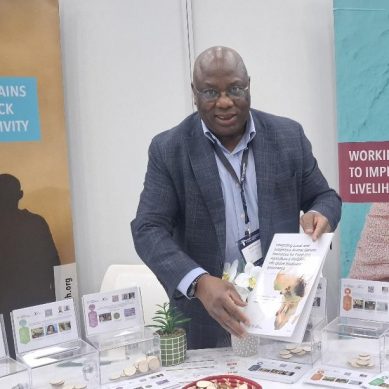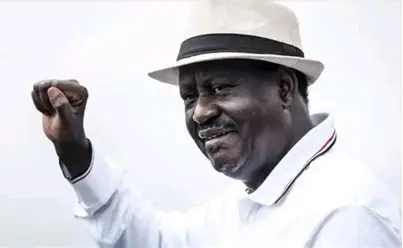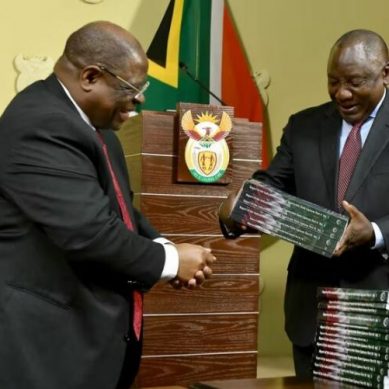Tree of life: Why African baobab is a ‘superfood’ consumers in US and Europe are jostling for
The global market for baobab products has spiked, turning rural African areas with an abundance of the trees into source markets. The trees, known for surviving even under severe conditions like drought or fire, need more than 20 years to start producing fruit and aren’t cultivated but foraged.
Nigerians resort to fortified bouillon to cut steep rise in malnutrition as Africa grapples with climate-enforced hunger
If public health advocates and the Nigerian government have their way, malnourished households in the West African nation soon will have a simple ingredient available to improve their intake of key vitamins and minerals. Government regulators on September 17 are launching a code of standards for adding iron, zinc, folic acid and vitamin B12 to bouillon cubes at minimum levels recommended by experts.
From historicisms, rat-stabbers, lions, devils to birds, gods and colours: How nicknames inspire football teams
The Bahamas, aka ‘The Rake and Scrape Boys’, are named after a famous local dance. Demonstration here. It would be a travesty if Egypt were called anything other than ‘The Pharaohs’, while Thailand are menacingly nicknamed ‘The War Elephants’, with the country known for its historical use of those animals in battle.
Land ethic: In Uganda, state is like an engineer who respects mechanical wisdom because he created it, but disrespects ecological wisdom
The Uganda government is likely to continue with bulldozing the construction of dams in total disregard of sustainable ecology, sustainable environment, sustainable development and environmental justice because it lacks the concept of democratic development, which takes away people’s traditional wisdom, traditions, culture and spirituality in account, preferring mechanistic development, which is committed to sowing the sterile culture of money that international financial institutions such as the World Bank and International Monetary Fund are committed to proliferating in every part of the world.
How Kenyan church named Good News presided over cult massacre that haunts survivors
Many of Africa’s evangelical churches are run like sole proprietorships, without the guidance of trustee boards or laity. Pastors are often unaccountable, deriving authority from their perceived ability to perform miracles or make prophecies. Some, like Mackenzie, can seem all-powerful.
How Central Africa Republic has become staging ground for America and Russia battle for influence in Africa
Moscow aggressively expanded its military cooperation by using mercenaries like Wagner, who have operated in at least half a dozen countries since around 2017. They’re tasked with protecting African leaders and in some cases helping fight rebels and extremists.
Investment in Uganda is euphemism for thievery as presidents Museveni and Kagame chaperon the looters
Uganda’s new generation of materialistic leadership is today dominated by people who spent five years in the bush (1981-86) robbing banks, cooperative unions, et cetera. They are now brazenly looting Uganda’s natural resources and depleting the national treasury by allocating taxpayers’ money to themselves and to preferred so-called investors who are predominantly foreigners from India and China.
Was Jomo Kenyatta Ugandan? Scholars trace Kenya’s founding president’s ancestry to a Musoga woman called Katundu, who gave Gatundu its name
There is, however, another narrative of Jomo Kenyatta’s ancestry, which asserts that Kenyatta belonged to Soga culture and was thus a Musoga of the Chwezi Igaga clan, to which Prince Byaruhanga Ndahura, the founder of the Busoga Kingdom at Nnenda Hill, and His son Wamara Byaruhanga Ndahura, the first King of Busoga, belonged. According to a credible story, Kenyatta’s father was called Katagiro. Katagiro was engaged in a spear fight with some of his classmates over a “beautiful” woman called Katundu in a place called or close to Nsambya, near the location of Ikumbya Primary School, in Luuka County in present- day Luuka District.
Chwezi and witchcraft: Why Ugandans fear Museveni and Kagame are keen on Tutsi political hegemony in East Africa
Currently, encouraged by the fact that power in Uganda is dominated by people of Tutsi/Hima extraction, the Tutsi wield the real power in the country. Many are local council leaders at all levels of administration, resident district commissioners, institutional leaders and even represent Ugandans at local and parliamentary levels. Others sit on the bench of judges while many hold ministerial positions. Many are definitely holding big positions in the Uganda armed forces, including prisons. This means that the best paid people in Uganda tend to belong to the same ethnicity. It is more or less the same people fuelling corruption in the country.
Why mistrust between warring communities creates an arms race among pastoralists in Kenya
Free movement across the rangelands is central to both the local economy and the pastoral lifestyle. But the creation of county borders following devolution in 2013 has interrupted that mobility and led to boundary disputes – particularly in areas with abundant grazing land, water and minerals, with communities vying for control.















